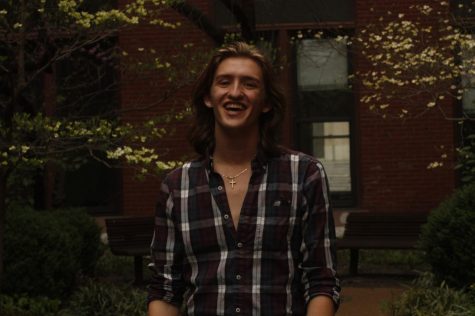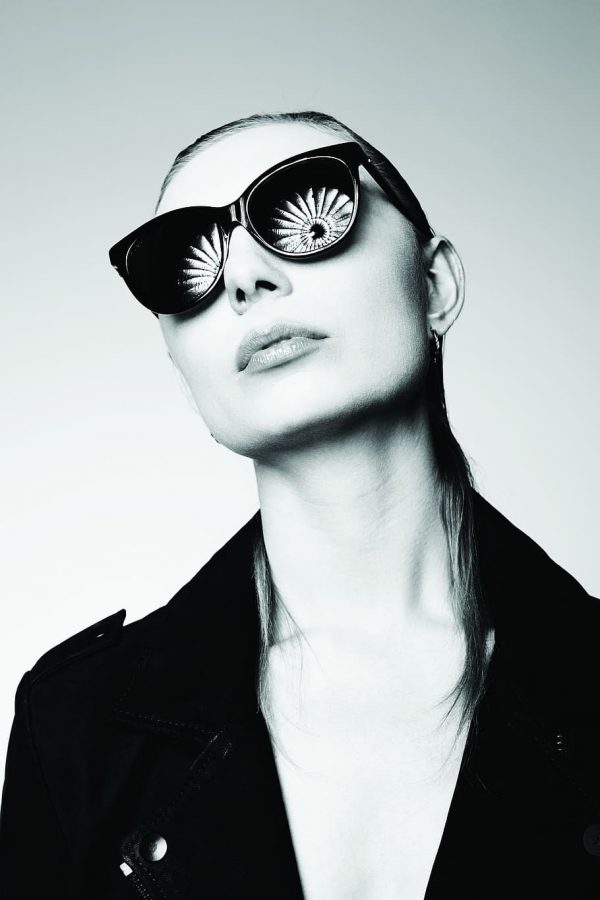“Future Nostalgia” is the Sound of Tomorrow’s Past
The lead single from Dua Lipa’s highly anticipated sophomore record was released nine days after the decade anniversary of Lady Gaga’s song “Bad Romance.” Without sounding too “JFK and Lincoln,” there’s an eerie similarity between these two events. As Gaga became the world-dominating superstar she was at the time, there was a narrative shift that came with her sophomore record “The Fame Monster” catapulted by “Bad Romance” that showed Gaga as an artist willing to please the public without compromising rich talent or creativity. Ten years later, “The Fame Monster” is still considered her masterpiece.
This happened again in 2015 with Carly Rae Jepsen. The Canadian singer-songwriter was destined to be the next Madonna with the unavoidable success of “Call Me Maybe” but, at the same time, seemed unlikely to make the next “Like A Prayer.” However, “Run Away With Me” catapulted the narrative shift that came with “Emotion,” naming Jepsen a queen of pop for both indie snobs and those fans who stuck around after the mixed reception of “Call Me Maybe” and its record “Kiss.”
Toward the end of the decade, pop as a whole seemed to go through a narrative shift of its own. The internet has made it easier to make and release music now than ever before, and this resulted in a rise in people wanting to write and record pop not for a desire to please the public but for a desire to please their love for the genre. Now, it’s acceptable for anyone to stan mainstream pop artists and musicians like Slayyyter, Rina Sawayama and Kim Petras, to name a very select few, who can originate from or stay in the underground while making unapologetic pop and still be taken seriously as artists.
With all of this working in her favor, Dua Lipa entered the equation in 2017 with her hotly anticipated self-titled record, an album that showed only a slight desire to rise above her mainstream pop contemporaries. This desire was apparent on the hit songs “Blow Your Mind” and “New Rules,” and her appreciation for classic pop was displayed on her dedication to the sounds of the ’80s on tracks like “Lost In Your Light” and “Be the One.” However, these strokes of genius across the record felt more like bright pink sprinkles on a mediocre vanilla ice cream. Then, ten years after “Bad Romance,” four years after “Run Away With Me” and two years after her debut, came “Don’t Start Now.”
It’s hard to deny just how good of a song it is, even in the midst of 2019’s generous amount of fantastic pop. Set to a great melody and fantastic hooks, Lipa and her collaborators do a lot with a little, as all she needs is a groovy bassline and basic yet punchy percussion to absolutely kill the dancefloor. It truly is deserving of a title that pop heads do not throw around lightly: pop perfection. This quality was beyond noticed by the mainstream public, but the universal critical acclaim was undeniable as history was repeating itself—this was her “Bad Romance,” and the subsequent singles were shaping “Future Nostalgia” up to be her “The Fame Monster.” With the sassy, retro futuristic title track, which has one of the most fun pre-choruses on the entire record, and the slightly generic yet similarly euphoric synth pop of “Physical,” pop heads had their mouths watering for Dua Lipa’s sophomore record.
If there’s one thing that makes itself clear with the album finally out, it’s that Lipa knew she was onto a fantastic formula that was perfected on “Don’t Start Now,” and that proves itself time and time again for better or for worse. The only slight breakaway from this tried-and-true pop formula is on the closer, “Boys Will Be Boys,” which is not only the most underwhelming tune on the project but sounds as if she threw a handful of feminist BuzzFeed articles from 2016 and power ballad cliches into a blender and out came this song.
Weak activism aside, the vast majority of “Future Nostalgia” is fine-tuned radio pop, drawing inspiration from the past sounds of the genre that have aged the best over the years. It’s a product that comes from a clear love for the genre and an appreciation of its artistic merit, and it’s through this appreciation that she occasionally finds herself emulating sounds that haven’t been dominating the charts in some time, channeling early 2000s Kylie Minogue on the house-infused “Hallucinate” and a cheeky Lily Allen on the piano-backed “Good in Bed,” often with only a fraction of the character required to make these styles click.
And that’s an issue with many of these songs—Dua Lipa does not have a distinct enough personality to make me rush back to these songs, which is unfortunate because many of the weaker parts of this record have a lot of great things going for them. However, the glamorous strings and funky bassline on “Love Again” is only a small distraction from how nondescript the performance is, even if Lipa is a great singer.
However, when this thing pops, it pops. While eerily similar in structure to “Don’t Start Now,” “Break My Heart” is another dance pop anthem destined for the dancefloor and the highlight of the second half of the record. This stripped back, drums-and-bass sound is done even more fantastically on “Pretty Please;” only, this time, the progression is stretched out across the entire track, constantly keeping you engaged as the minimal instrumental slowly adds layers of sound until you forget you were ever surrounded by such a sparse sound pallet. Once the random bits of percussion and vocal chops appear during the second half of the song, it’s pure subdued perfection.
The dance party continues with “Hallucinate,” a song that sounds like an outtake from Kylie Minogue’s “Fever” with its Daft Punk-esque instrumental, and “Levitating” is a summer night anthem calling back to ’70s-era funk in a delightfully modern way. Similarly enamoring is the sleek synth pop of “Cool,” an obvious nod to the ’80s that swaps out the danceability of the majority of the record for a much more sensual experience.
And the overall experience is quite a fun ride, one that only gets better with each listen. It’s not reinventing the wheel by any means, as it’s quite nostalgic but hardly futuristic, but it thrives on what makes pop such a universally appealing genre: fun, infectious songwriting. It not only paints a portrait of where this artist is now but also a clear way forward, displaying everything she’s doing right and everything she needs to improve on. Until she further thickens the line between an average pop star’s personality and her own, she is still yet to make her “Emotion,” “Charli” or “The Fame Monster.” But this, if not just a great record, is a stepping stone to that. For now, “Future Nostalgia” is enough to hold us over until that masterpiece.
With that being said, this album is helping confirm a theory I’ve had for the past couple of years about this decade being a golden era for commercial pop, as if fantastic releases from Kim Petras, Ariana Grande, Sigrid, Lizzo, Billie Eilish, Carly Rae Jepsen and Charli XCX from last year didn’t already.
These are artists who are doing their own thing, more in control of their music than major pop stars were a decade ago, and to name all of the mainstream and underground pop achievements in the past few years warrants an article of its own. It seems more mainstream artists are taking cues from the sounds of the underground and their most experimental and authentic contemporaries, with Dua Lipa finally added to that conversation. Will this ring true over the next 10 years? Will we have a decade as fruitful for pop music as the ’80s? All we can do now is watch, but if that is the case, Dua Lipa kicked it off fantastically.
8/10
Your donation will support the student journalists of Saint Louis University.



